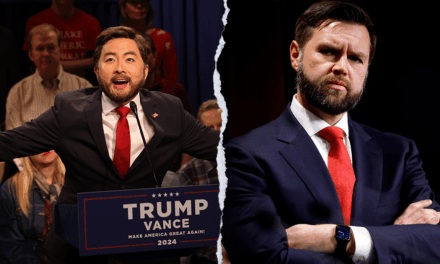In a gripping moment during a congressional hearing, a Republican lawmaker challenged the former CEO of 23andMe, Anne Wojcicki, over an incident related to a statement about pronouns that sparked much debate. The exchange highlighted broader conversations around identity and the social ramifications of language in today’s society.
The confrontation unfolded as lawmakers questioned Wojcicki about her past comments and social media activity, particularly focusing on her acknowledgment of pronouns. The GOP representative pressed her on the significance of pronouns in corporate culture and wider society, which led to Wojcicki admitting her unfamiliarity with the nuanced meanings behind various pronouns.
This incident is emblematic of the ongoing culture wars in the United States, where discussions about identity politics and gender have become increasingly polarizing. Wojcicki, who co-founded the genetics company known for its DNA testing kits, found herself in an uncomfortable position during the testimony. She was questioned not only about corporate policies at 23andMe but also about her personal views and the implications of such public statements.
The lawmaker’s inquiry was not merely a matter of curiosity; it reflected a growing concern among certain factions within the political landscape regarding the direction of discussions around gender identity. The question of pronouns—he, she, they—has become a flashpoint in the American lexicon, with implications for education, corporate policy, and individual rights.
Wojcicki’s struggle to articulate her views on the importance of pronouns underlines a significant divide in today’s political discourse. Supporters of inclusivity argue that understanding and respecting an individual’s chosen pronouns contributes to a culture of acceptance and recognition, promoting a more equitable society. Conversely, skeptics raise concerns about political correctness and the potential for silencing dissenting opinions.
As Wojcicki grappled with the line of questioning, observers noted the palpable tension in the room. The GOP lawmaker framed the discussion in a way that suggested that failing to grasp the complexities of pronoun usage equated to a lack of competence—an assertion that led many to speculate about the motivations behind the inquiry.
This clash is part of a larger narrative playing out in the U.S. San Francisco, home to Silicon Valley and progressive ideologies, often stands in stark contrast to more conservative regions, creating a cultural clash that can manifest in congressional hearings and public discourse. Wojcicki, as a major figure in a tech company that prides itself on innovation and diversity, faced a stark reminder that not all audiences share the same values or prioritize the same issues.
In recent years, many corporations have adopted more inclusive practices regarding gender identity, including the use of preferred pronouns in email signatures, job applications, and company culture guidelines. This, however, has drawn backlash from conservative circles. Critics argue that such initiatives impose ideologies upon individuals and infringe upon the rights of those who do not subscribe to progressive notions of gender identity.
In the case of 23andMe, the company’s mission to empower people through genetic insights and health information has sometimes intersected with wider societal debates. Former CEO Wojcicki’s role required her to navigate complicated discussions around privacy, ethics, and now, language and identity. How executives choose to engage with these topics can deeply influence their organization’s reputation and appeal.
The focus on personal pronouns has expanded beyond individual identity to permeate discussions of social policy and education. Schools and workplaces are re-evaluating their approaches to inclusivity and are often implementing specialized initiatives to accommodate diverse identities. This shift raises questions about the role of government in dictating or influencing these cultural changes.
The back-and-forth at the hearing points to the tensions created by the cultural push for acceptance of varied identities against a backdrop of traditional values. Many citizens feel caught in the crossfire, observing the shifts without fully understanding the implications or the moral imperatives behind them.
Many within the LGBTQ+ community have expressed frustration with the opposition to inclusive practices, asserting that the recognition of diverse pronouns should be viewed as a fundamental human right. They argue that such acknowledgment not only affirms individual identities but also promotes broader societal understanding and reduces stigmatization. Conversely, critics of this perspective contend that prioritizing pronouns can overshadow pressing issues like healthcare, housing, and economic stability, arguing that the focus on language can be seen as a distraction from more tangible problems facing marginalized communities.
Wojcicki’s admission of uncertainty regarding the meanings of various pronouns is emblematic of a larger debate regarding knowledge and engagement in conversations about gender and identity. Some critics highlight the need for leaders and public figures to be informed and articulate on these issues, suggesting that ignorance about terms associated with social inclusivity can diminish a leader’s credibility.
As this dialogue continues, it will be important for both corporate leaders and lawmakers to navigate the fine line between advocating for inclusivity and addressing critique. In a society that is significantly divided along cultural lines, addressing the complexities of identity—including pronouns—will require sensitivity, open-mindedness, and a commitment to ongoing education.
The implications of this hearing extend beyond Wojcicki and 23andMe; they illuminate the challenges faced by organizations attempting to align corporate practices with social movements. Finding ways to lead without alienating stakeholders from varying backgrounds will be crucial for future corporate strategies.
Moving forward, the emphasis on inclusive language may well shape not only corporate policy but also legislation and social norms. As the nation grapples with questions of identity, there is a growing need for ongoing conversations that prioritize empathy, knowledge, and respect for diverse perspectives. The recent exchange between a GOP lawmaker and Anne Wojcicki serves as a reminder that discussions about language, identity, and corporate culture are far from resolved, reflecting the complexities of a first-world country grappling with diverse identities and experiences.
In conclusion, as the debate surrounding pronouns continues to evolve, it is essential for individuals and leaders alike to engage thoughtfully and critically with these evolving conversations. The stakes are high, and the ramifications of our collective understanding will shape the fabric of society for generations to come.
































